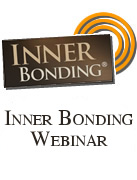7 Common Phrases that Can Indicate Your Intent is to Control
By Dr. Margaret PaulDecember 13, 2021
There are certain phrases many people say when in their wounded self. Noticing when you say these words can alert you to your intent to control.
 There are numerous common phrases that many of us say when we are in our wounded self. By learning to listen to and hear ourselves, we can watch for these phrases to help us discern the fact that we are likely in the intent to protect, avoid, and control. All these phrases come from the part of us that believes we are a victim - that others are responsible for our feelings and wellbeing.
There are numerous common phrases that many of us say when we are in our wounded self. By learning to listen to and hear ourselves, we can watch for these phrases to help us discern the fact that we are likely in the intent to protect, avoid, and control. All these phrases come from the part of us that believes we are a victim - that others are responsible for our feelings and wellbeing.
- "I don't feel safe."
The wounded self believes that others are responsible for our emotional safety or lack of safety (we are not talking here about physical safety). The statement, "I don't feel safe" is generally a blame, unless you follow it with, "...and I wonder what I'm doing that's making my inner child feel so unsafe?" Usually, the unspoken rest of the sentence, "I don't feel safe," is "...because you are judging me," or “because you are angry and blaming me.” When there is no loving adult to help your inner child not take judgment, anger, and blame personally, the wounded self will always feel unsafe in the face of others' unloving behavior.
- "I feel judged."
Whether or not another is judging us, our feeling judged comes from having no loving adult inside to take care of us. No one can make us feel judged. If we feel judged, it is because we are taking in another's judgment. Often, when in a wounded state, we project our own judgment onto others and believe they are judging us even when they are not.
- "I don't feel seen."
When we have a loving adult who sees us, we are not overly concerned with being seen by others. However, when in a wounded state, we have handed our inner child to another, making the other person responsible for seeing us. When you hear yourself say, "I don't feel seen," you might want to do an Inner Bonding process and see how you are not seeing yourself.
- "I don't feel loved."
Again, this is often a blame, with the rest of the sentence being, "and it's your fault because you are not loving me." When we feel unloved, it's often because we are not taking loving care of ourselves in the face of another's unloving behavior, or we are not listening to what our inner child needs from us. Not feeling loved is often the result of the wounded self being in charge, rather than the result of others' behavior.
- "I feel alone."
The wounded self believes that feeling alone is the result of not having others around to love us and care about us. I differentiate feeling alone from feeling lonely. Feeling lonely is a fact of life. When we have no one with whom to share love, or our partner is not open to sharing love with us, we will feel lonely. Feeling alone, however, is the result of inner abandonment. When we feel alone, we are in a disconnected, wounded state. We have disconnected from our inner child and from our higher guidance, so our inner child feels alone inside and alone in the universe. We will feel lonely as well as alone when we are in our wounded self because we cannot connect with others when we are disconnected from ourselves, even when others are open to sharing love with us.
- "I'm angry."
The rest of the sentence may be, "...because of what you did. You made me angry." When we are angry with another, it is often because we have abandoned ourselves. Our inner child is angry with our wounded self, and we are projecting it onto another. Regardless of what another has said or done (again, we are not talking about physical harm or any form of abuse), we will not be angry when we are taking loving care of ourselves.
- "What about the other person's part of this conflict?"
I often hear this with my clients who are in relationships or in conflict with a friend. The wounded self generally wants to focus on the other person rather than on oneself. I often say to my clients, "The other person's part of the conflict is their business. Either they will learn from it, or they will not. Either they will deal with it, or they will not. However, you have an opportunity to learn about your end of the conflict and what would be loving to you in the face of this conflict." As long as you are focusing on another, you are not being a loving adult - not in an intent to learn about loving yourself. If you keep your eyes on your own plate, you will not be a victim.
Whenever we feel like a victim, it is because we are in our wounded self, blaming someone else for our feelings. When this is the case, it is a wonderful opportunity to go through the Six Steps of Inner Bonding to discover what we are doing to cause our distress and what would be the loving action in our own behalf.
Join Dr. Margaret Paul for her 30-Day at-home Course: "Love Yourself: An Inner Bonding Experience to Heal Anxiety, Depression, Shame, Addictions and Relationships."
 Send this article to a friend
Send this article to a friend  Print this article
Print this article  Bookmarked 1 time(s)
Bookmarked 1 time(s)
| Related Articles |
|---|
| Protecting: From Your Wounded Self or Your Loving Adult |
| Begin Training NOW! For the Wounded-Self Olympics! .....Oh, wait, you already have....... |
Comments
| Author | Comment | Date |
|---|---|---|
| Join the Inner Bonding Community to add your comment to articles and see the comments of others... | ||

Daily Inspiration
Every relationship in our lives offers us a gift of growth. Think about your most difficult relationships - family, friends, co-workers. Today, pick one to focus on. How is this person a mirror for you? How do you not take care of yourself around this person? What do you want from this person that you are not giving to yourself?
By Dr. Margaret Paul

 Share with Del.icio.us
Share with Del.icio.us Share with Digg
Share with Digg






